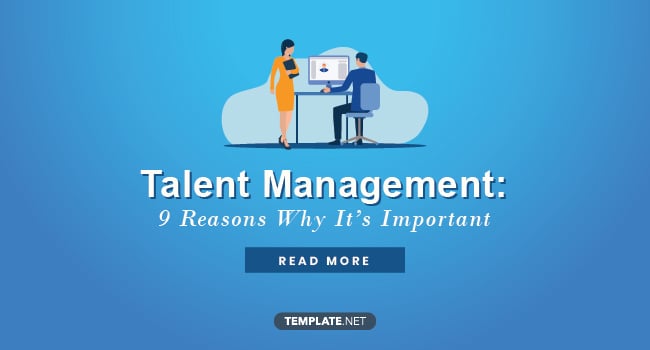9 Reasons Why Talent Management is Important
What does Talent Management Mean?
Talent management refers to the initiatives that a company takes to hire, train, and retain the skilled and promising employees within the job market. It is a great way to maintain positive employee relations as it shows them that the company has taken interest and is investing in them to become the best that they can be. With this implication, talent management can lead to a boost in employee engagement. Talent management is all about the making of a proverbial checklist on how to get the best employees and keep them in the company.

9 Reasons Why Talent Management is Important
Figuring out how to manage your employees and make them the best is an important HR skill. Talent management is a lot of work, but it is worth it. Here are nine reasons why it is important for every company.
Attract Top Talent
Top talent refers to employees who have the highest scores in terms of productivity and performance, as well as having the company’s ideal traits. One aspect of talent management is the recruitment of the best employees. With it, the selection process for candidates has a specific set of standards that the recruitment team will follow. The applicants will be evaluated whether or not they are the type of employee who would do great in the job or not. This is to have the best employees already from the get-go.
Increases Productivity
Talent management also gives a boost to productivity in the workplace. How so? The initiatives in talent management ensure that you hire hardworking employees who are well equipped to do their job. At the same time, developing the employees, you already have to be better than they were before. In the end, your workforce will be the best, and they’ll be more efficient, creative, as well as motivated in their work. This serves as an excellent way for employee productivity in the company.
Forms Productive Teams
With talent management, companies can obtain the best employees they can ask for. To make it more effective, this also helps the HR management by having the best of them work together. It can get a lot of work done when the best employees are put into a team together. However, that is not the only scenario. Talent management also lets managers put employees together to combine their individual strengths and manage their weaknesses. This allows companies to take care of the weakest link in their chain as well as increase the quality and productivity of the employees.
Retain Talented Employees
Talent management doesn’t just involve getting the best employees. It also includes keeping them as well. You wouldn’t want to lose your best-performing employees when they contribute very well to the company. Talent management enables companies to figure out ways to keep their best employees with them for a very long time. They can come up with various employee retention strategies such as providing career growth or giving them a raise in their salary.
Decreases Turnover
You won’t have to run analytics on the company’s employee turnover no longer. With talent management, you will be able to figure out how to keep your employees around. Some of the employee’s reasons for staying in a company are to gain professional growth and improvement of their skills. With talent management, those exact needs are met, and this can help decrease employee turnover within the company.
Keeps Employees Motivated
Motivation is essential when it comes to keeping employees engaged and productive in their work. Through talent management, employees are being included in training and initiatives that are designed to make them better. Going through that kind of growth can give employees the right motivation in their work.
Making Hiring Decisions
The hiring process is not going to be a lot of work anymore. Talent management defines the qualities and traits that companies should look for their employees. With this in place, the recruitment team will have an easy time picking among the candidates for the job position they seek to fill. For example, in the search for the replacement of a receptionist, through talent management, the recruitment team will choose to hire the candidate with an impressive resume, give a good impression in the interview, and show potential in growing within the company.
Increase Employee Performance
Employee performance refers to how well the people do in their responsibilities and their overall attitude in the workplace. Talent management is a big help in performance management in that good employees would naturally have a sound output in their work. This would give a boost in employee performance, and when everyone in the workplace practices this, then it becomes a positive company culture. This will encourage other employees to do their best at work and will lead to the business having a great advantage overall.
Develops Skills and Competencies in Employees
One of the initiatives taken in talent management is the development of an employee’s professional skills. By gathering data through HR surveys, observations, and interviews, the company’s training, and the development team can find out what the employee’s needs are to utilize their full potential. They then provide the necessary training and coaching sessions for these employees to make them even better than they were before. This makes the employees more competent, and perhaps gain new skills that will help bring the company up.
Taking initiatives to mold employees to be their best and recruiting the promising ones ensures that your company will have an advantage. Talent management is one way a company can stay ahead of their competitors in order to keep up in the fast-paced world of business.






